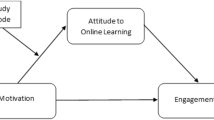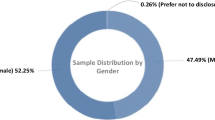Abstract
The purpose of this paper was to examine the motives, the educational experiences, and the plan after graduation of a particular group of mainland Chinese students pursuing teacher education in Hong Kong by using a modified two-way push-and-pull model as our analytical framework. The study employed both quantitative and qualitative methods. Participants were 130 prospective student teachers from The Hong Kong Institute of Education, the largest teacher training provider in Hong Kong. The findings confirm a long-standing concern regarding the lack of an English environment and internationalization in universities in mainland China. In addition, the majority of the participants were satisfied with the overall quality of the teacher education programs in Hong Kong. Finally, our participants were a very special group of mainland Chinese students because, unlike those on other academic programs such as business or computing, the graduates from teacher education programs do not have much transferable academic capital. When they decide to pursue their teacher training degrees in Hong Kong, they have already made up their mind to stay in Hong Kong after graduation. Thus, we extend the threefold classifications of mainland Chinese students studying overseas, as defined by Dimmock and Leong, by adding a new category—labeled ‘settlers’—in their classification.


Similar content being viewed by others
References
Bass, M. (2005). The issue of permanent residency. Campus Review, 15(47), 6.
Bodycott, P. (2009). Choosing a higher education study abroad destination. Journal of Research in International Education, 8(3), 349–373.
Cheung, A. (2013). Language, academic, socio-cultural and financial adjustments of mainland Chinese students in Hong Kong. International Journal of Educational Management, 27(3), 221–241.
Cheung, A., & Xu, L. (2014). To return or not to return: Examining the return intentions of mainland Chinese students studying at elite universities in the United States. Studies in Higher Education, 1–20. doi:10.1080/03075079.2014.899337.
Cheung, A., Yuen, W. W., & Yuen, Y. M. (2008). Exporting Hong Kong’s higher education in Asian markets: Strengths, weaknesses, opportunities, and threats. International Journal of Educational Reform, 17(3), 308–326.
China Statistics Yearbook. (2010). Education statistics of China. Retrieved May 5, 2014, from http://www.chinastatistics.net/china-statistical-yearbook-2010-m-9.html.
China Teacher Qualifications Recognition Center. (2012). Teacher Qualification Recognition. Retrieved May 16, 2014, from http://www.jszg.edu.cn/portal/home/index.
Creswell, J. W. (2012). Educational research: Planning, conducting, and evaluating quantitative and qualitative research. London: Pearson.
Dimmock, C., & Leong, J. O. S. (2012). Studying overseas: Mainland Chinese students in Singapore. Compare, 40(1), 25–42.
Gao, X. (2008). Shifting motivational discourses among mainland Chinese students in an English medium tertiary institution in Hong Kong: A longitudinal inquiry. Studies in Higher Education, 33(5), 599–614.
Gao, X., & Trent, J. (2009). Understanding mainland Chinese students’ motivation for choosing teacher education programmes in Hong Kong. Journal of Education for Teaching, 35(2), 145–159.
Gill, S. (2007). Overseas students’ intercultural adaptation as intercultural learning: A transformative framework. Compare, 37(2), 167–183.
Golafshani, N. (2003). Understanding reliability and validity in qualitative research. The Qualitative Report, 8(4), 597–614.
Gross, A., & Connor, A. (2007). Managing Chinese returnees. Retrieved April 24, 2011 http://www.pacificbridge.com/publication.asp?id=98.
Gu, M. M. (2011). Cross-border pre-service teachers in Hong Kong: ‘To be or not to be integrated, that is the problem’. Journal of Education for Teaching, 37(2), 139–154.
Gu, M. M., & Lai, C. (2012). Motivation and commitment: Pre-service teachers from Hong Kong and mainland China at a training institute in Hong Kong. Teacher Education Quarterly, 39(3), 45–61.
Hung, F. S., Shive, G., Wang, X. H., & Diu, J. (2005). A report on export potential of Hong Kong’s education services: Consultancy Study for the Hong Kong Trade Development Council. Hong Kong: The Chinese University of Hong Kong.
Institute of International Education. (2014). Project Atlas: Trends and global data 2013. Retrieved May 16, 2014, from http://www.iie.org/en/Research-and-Publications/Project-Atlas.
Ip, M. (2006). Returnees and transnationals: Evolving identities of Chinese (PRC) immigrants in New Zealand. Journal of Population Studies, 33, 61–102.
Li, M., & Bray, M. (2006). Social class and cross-border higher education: Mainland Chinese students in Hong Kong and Macau. Journal of International Migration and Integration, 7(4), 407–424. doi:10.1007/bf02934902.
Li, M., & Bray, M. (2007). Cross-border flows of students for higher education: Push-pull factors and motivation of Mainland Chinese students in Hong Kong and Macau. Higher Education, 53(6), 791–818.
Mazzarol, T., & Soutar, G. N. (2002). “Push-pull” factors influencing international student destination choice. International Journal of Educational Management, 16(2), 144–163.
Morris, P., & Adamson, B. (2010). Curriculum, schooling and society in Hong Kong. Hong Kong: University of Hong Kong Press.
OECD. (2013). Education at a glance 2013: OECD indicators. Retrieved May 16, 2014, from https://dx.doi.org/10.1787/eag-2013-eng.
Sharma, Y. (2011). China: Top students opt for Hong Kong. Retrieved December 14, 2011, from University World News http://www.universityworldnews.com/article.php?story=2011072220254345.
Spinks, J. A., & Wong, I. Y. S. (2010). Understanding student recruitment in Mainland China: A case study. London: The Observatory on Bordless Higher Education.
Tashakkori, A., & Creswell, J. W. (2007). Exploring the nature of research questions in mixed methods research. Journal of Mixed Methods Research, 1(3), 207–211.
Tashakkori, A., & Teddlie, C. (Eds.). (2002). Handbook of mixed methods in social and behavioral research. Thousand Oaks, CA: Sage.
Teddlie, C., & Tashakkori, A. (2009). Foundations of mixed methods research: Integrating quantitative and qualitative approaches in the social and behavioral sciences. Los Angeles, CA: Sage.
The Hong Kong Government. (2007). Policy Address 2007–2008.: Retrieved from http://www.policyaddress.gov.hk/07-08/eng/policy.html.
Trent, J., & DeCoursey, M. (2011). Cross-boundaries and constructing identities: The experiences of early career mainland Chinese English langage teachers. Asia Pacific Journal of Teacher Education, 39(1), 65–78.
University Grants Committee. (2010). Opening remarks by Mr. Michael V. Stone, Secretary-General, University Grants Committee. Retrieved March 2, 2010 https://www.ugc.edu.hk/eng/ugc/stat/student_head.htm.
University Grants Committee. (2014). Non-local Student Enrolment (Headcount) of UGC-funded Programmes by Institution and Place of Origin, 2011/12 to 2012/2013. Retrieved May 16, 2014 http://cdcf.ugc.edu.hk/cdcf/searchStatisticsReport.do.
Yang, M. (2007). What attracts mainland Chinese students to Australian higher education. Studies in Learning, Evaluation Innovation and Development, 4(2), 1–12.
Zhao, J., & Guo, J. (2002). The restructuring of China’s higher education: An experience for market economy and knowledge economy. Educational Philosophy and Theory, 34(2), 207–220.
Author information
Authors and Affiliations
Corresponding author
Rights and permissions
About this article
Cite this article
Cheung, A.C.K., Yuen, T.W.W. Examining the motives and the future career intentions of mainland Chinese pre-service teachers in Hong Kong. High Educ 71, 209–229 (2016). https://doi.org/10.1007/s10734-015-9897-3
Published:
Issue Date:
DOI: https://doi.org/10.1007/s10734-015-9897-3




